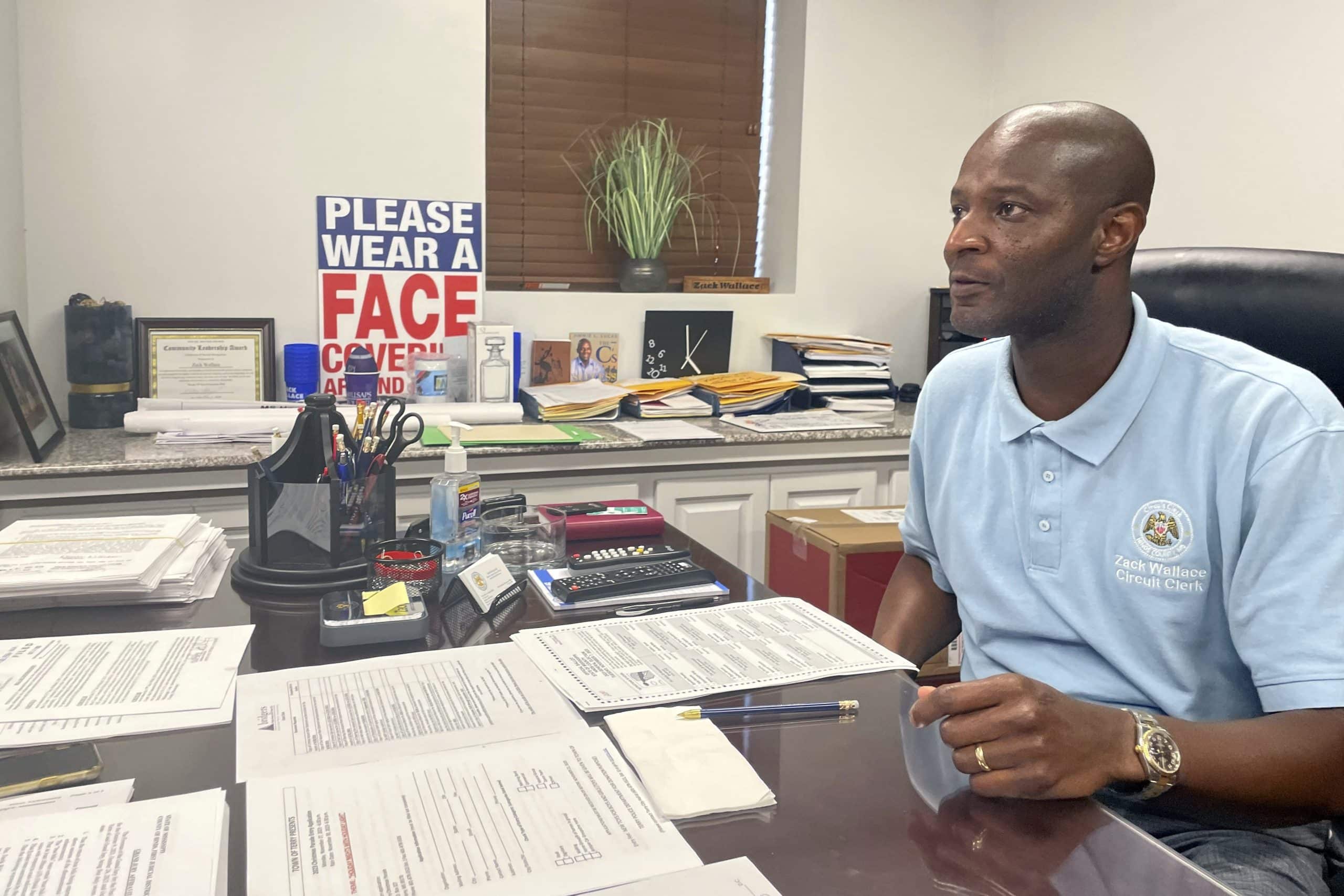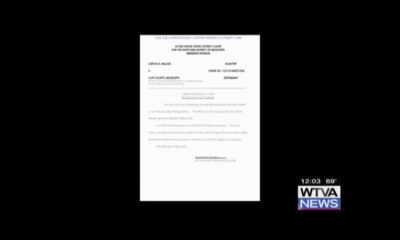Mississippi Today
Lawsuits dropped over Hinds County ballot shortages

Two organizations have dropped their challenges over Hinds County running out of ballots on election day.
Numerous Hinds County voting precincts ran out of ballots during Mississippi's statewide election on Nov. 7, leaving some voters waiting in line for hours and causing others to give up and go home.
As ballots ran short, two groups filed separate lawsuits to try to give people more time to vote on election night. One was filed by the nonpartisan Mississippi Votes. The other was filed by the Mississippi Democratic Party.
In the Democratic Party's lawsuit, a chancery judge ordered all Hinds County polling places to remain open an extra hour, until 8 p.m. The state Republican Party filed an emergency appeal to the Mississippi Supreme Court and asked the state's highest court to overturn the order.
But the state Supreme Court did not rule on the GOP's motion before the Democratic Party on Nov. 8 filed a motion to dismiss the case.
READ MORE: Hinds County ballot shortages cause legal mess on Election Day
In the Mississippi Votes lawsuit, a special judge appointed by the state Supreme Court's chief justice said specific precincts, could remain open until every voter in line at 7 p.m. had a chance to cast a ballot. But this is what state law already requires at precincts.
Mississippi Votes appealed this ruling to the Mississippi Supreme Court. But the organization on Nov. 13 filed a motion to dismiss its appeal, which Presiding Justice Jim Kitchens granted that same day.
The respective dismissals essentially end all pending lawsuits related to the Hinds County ballot shortages. However, individual candidates could bring their own election challenges over the results and petition courts for relief over the ballot issues.
The Election Day issues in the state's most populous county is highly unlikely to impact statewide elections such as the governor's race where Republican Gov. Tate Reeves defeated Democratic challenger Brandon Presley.
But it could make a difference in other elections such as the Central District Public Service Commission race, which remained neck-and-neck with the DeKeither Stamps, the Democratic nominee, having a slight lead over Brent Bailey, the Republican incumbent.
State law requires counties certify election results by Friday, Nov. 17.
This article first appeared on Mississippi Today and is republished here under a Creative Commons license.
Did you miss our previous article…
https://www.biloxinewsevents.com/?p=305604
Mississippi Today
Renada Stovall, chemist and entrepreneur
Renada Stovall sat on the back deck of her rural Arkansas home one evening, contemplating life when she had a life-altering epiphany…
“I gotta get out of these woods.”
She heard it as clear as lips to her ear and as deep as the trees surrounding her property. Stovall's job as a chemist had taken her all over the country. In addition to Arkansas, there were stints in Atlanta, Dallas and Reno. But she was missing home, her parents and friends. She also knew, she needed something else to do.
“I thought, what kind of business can I start for myself,” said Stovall, as she watered herbs growing in a garden behind her south Jackson home. Some of those herbs are used in her all-natural products. “I know when I lived in Reno, Nevada, where it's very hot and very dry, there really weren't products available that worked for me, my hair, and my skin suffered. I've got a chemistry degree from Spelman College. I took the plunge and decided to create products for myself.”

In 2018, Stovall's venture led to the creation of shea butter moisturizers and natural soaps. But she didn't stop there, and in December 2022, she moved home to Mississippi and got to work, expanding her product line to include body balms and butters, and shampoos infused with avocado and palm, mango butter, coconut and olive oils.
Nadabutter, which incorporates Renada's name, came to fruition.

Stovall sells her balms and moisturizers at what she calls, “pop-up markets,” across the state during the summer. She's available via social media and also creates products depending on what of her ingredients a customer chooses. “My turmeric and honey is really popular,” Stovall added.
“The all-natural ingredients I use are great for conditioning the skin and hair. All of my products make you feel soft and luscious. The shea butter I use comes from West Africa. It's my way of networking and supporting other women. And it's my wish that other women can be inspired to be self-sufficient in starting their own businesses.”





This article first appeared on Mississippi Today and is republished here under a Creative Commons license.
Mississippi Today
On this day in 1954
MAY 17, 1954

In Brown v. Board of Education and Bolling v. Sharpe, the U.S. Supreme Court unanimously ruled that the “separate but equal” doctrine in Plessy v. Ferguson was unconstitutional under the 14th Amendment, which guaranteed equal treatment under the law.
The historic decision brought an end to federal tolerance of racial segregation, ruling in the case of student Linda Brown, who was denied admission to her local elementary school in Topeka, Kansas, because of the color of her skin.
In Mississippi, segregationist leaders called the day “Black Monday” and took up the charge of the just-created white Citizens' Council to preserve racial segregation at all costs.
This article first appeared on Mississippi Today and is republished here under a Creative Commons license.
Mississippi Today
Every university but Delta State to increase tuition this year
Every university in Mississippi is increasing tuition in the fall except for Delta State University.
The new rates were approved by the governing board of the eight universities, the Institutions of Higher Learning Board of Trustees, at its regular meeting Thursday.
The average cost of tuition in Mississippi is now $8,833 a year, a roughly 3% increase from last year. Students can expect to pay tuition ranging from $7,942 a year at Mississippi Valley State University to $10,052 a year at Mississippi State University.
In recent years, universities have cited inflation and rising insurance costs as reasons for the tuition increases. At Thursday's meeting, the board heard a presentation on how property insurance is becoming more expensive for the eight universities as Mississippi sees more tornadoes and storms with severe wind and hail.
READ MORE: Tuition increases yet again at most public universities
But it's an ongoing trend. Mississippi's public universities have steadily increased tuition since 2000, putting the cost of college increasingly out of reach for the average Mississippi family. More than half of Mississippi college students graduated with an average of $29,714 in student debt in 2020, according to the Institution for College Access and Success.
At Delta State University, the president, Daniel Ennis, announced that he will attempt to avoid tuition increases as the regional college in the Mississippi Delta undergoes drastic budget cuts in an effort to become more financially sustainable.
“We will resist tuition increases so that our most economically vulnerable students can continue to have access to the opportunities that a college degree can provide,” he wrote in a memo to faculty and staff on Monday. “We will move beyond basic survival and into a place where we have the capacity to take better advantage of our undeniable strengths.”
Delta State didn't increase tuition last year, either. Officials have been concerned the university is becoming too pricey for the students it serves.
Tuition for the 2024-25 academic year, by school:
- Alcorn State University: $8,105
- Delta State University: $8,435
- Jackson State University: $8,690
- Mississippi State University: $10,052
- Mississippi University for Women: $8,392
- Mississippi Valley State University: $7,492
- University of Mississippi: $9,612
- University of Southern Mississippi: $9,888
This article first appeared on Mississippi Today and is republished here under a Creative Commons license.
-
SuperTalk FM4 days ago
Martin Lawrence making 3 stops in Mississippi on comedy tour
-
Our Mississippi Home3 days ago
Beat the Heat with Mississippi’s Best Waterparks
-
Our Mississippi Home4 days ago
Charlie’s U-Pik: Opening Soon for the Summer Season
-
Mississippi News Video6 days ago
Local dentists offer free dental care in Amory
-
Kaiser Health News3 days ago
Medicaid ‘Unwinding’ Decried as Biased Against Disabled People
-
Mississippi News Video2 days ago
Jackson has a gang problem
-
Mississippi News7 days ago
Bond set for West Point couple accused of killing their child
-
Mississippi Today6 days ago
On this day in 1968



























![HIGH SCHOOL SOFTBALL: Vancleave @ East Central (5/9/2024) [5A Playoffs, South State]](https://www.biloxinewsevents.com/wp-content/uploads/2024/05/1715460379_maxresdefault-80x80.jpg)












